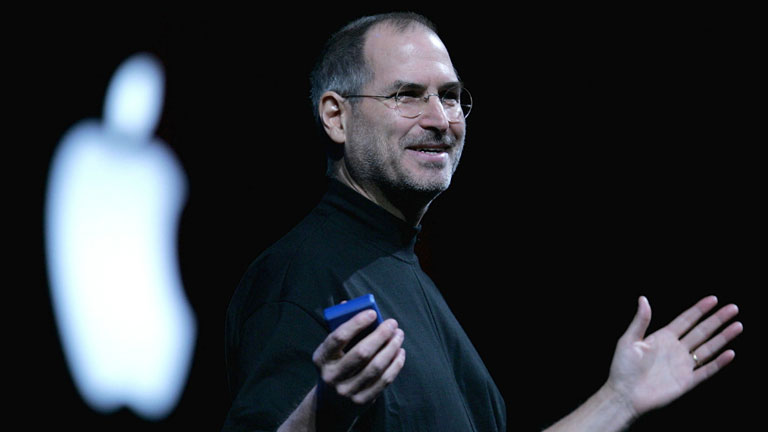Doom creator: Steve Jobs could talk confidently about things he was just wrong about
A legend talks about a legend

John Carmack, the programmer behind some of the most iconic PC games of all time, including Doom, Quake and Wolfenstein 3D, has spoken candidly about his relationship with Steve Jobs.
The revelations, which Carmack posted on Facebook, gives us an insight into what it was like to work with Jobs, and what the late CEO of Apple’s thoughts were on gaming.
Carmack’s first interactions with Jobs was after the release of Commander Keen and Wolfenstein 3D, when the company behind them (which Carmack worked for), ID Software, began growing in stature.
The company’s next game, Doom, which would revolutionise the world of PC gaming, was being developed on NeXT computers, which Jobs had founded after leaving Apple in 1985.
"At his core, Steve didn’t think very highly of games."
John Carmack
As Carmack explains, "We loved our NeXTs, and we wanted to launch Doom with an explicit 'Developed on NeXT computers' logo during the startup process, but when we asked, the request was denied."
However, after Doom launched and it was clear that it was going to be a huge hit – both commercially and critically – Jobs apparently changed his mind and wanted the game to ship with NeXT branding. However, according to Carmack, "that ship had sailed. I did think it was cool to trade a few emails with Steve Jobs."
This was one of the reasons why Carmack believes that "at his core, Steve didn’t think very highly of games, and always wished they weren’t as important to his platforms as they turned out to be. I never took it personally."
Sign up for breaking news, reviews, opinion, top tech deals, and more.
Anyone who has felt that Apple has often overlooked the PC gaming market may well agree with that sentiment.
Working with Steve
That wasn’t the last interaction the pair had, and after Jobs moved back to Apple, Carmack claims he "made it my mission to get Apple to adopt OpenGL as their 3D graphics API," but that “I had a lot of arguments with Steve.”
Carmack goes on to reveal that "Part of his method, at least with me, was to deride contemporary options and dare me to tell him differently. They might be pragmatic, but couldn’t actually be good. 'I have Pixar. We will make something [an API] that is actually good.'"
According to Carmack, "It was often frustrating, because he could talk, with complete confidence, about things he was just plain wrong about, like the price of memory for video cards and the amount of system bandwidth exploitable by the AltiVec extensions," but Carmack stood his ground and OpenGL made its way onto Apple devices.
Carmack also talks about working on Job’s famous keynote addresses. "I wound up doing several keynotes with Steve, and it was always a crazy fire drill with not enough time to do things right, and generally requiring heroic effort from many people to make it happen at all."
Apparently, Jobs would be obsessed with the small details of the keynote presentations, berating "the poor stage hands over 'This Home Depot shit' that was rolling out the display stand with the new Mac," which made him a difficult person to work with, but which did improve the quality of the presentations.
Steve Job’s zeal for those keynotes was underscored when he wanted Carmack to appear in a keynote that clashed with Carmack’s wedding. When Carmack declined the offer, Jobs apparently suggested that they postpone the wedding.
There’s a lot more information in the Facebook post, and it goes into fascinating detail about working with Steve Jobs, and his mercurial nature, where one minute he could be your biggest fan, and then the next completely reject you, such as when Carmack made comments about the security of Apple’s operating systems that was picked up by the press, leading to Jobs apparently instructing his employees "to not give...access to the early iPhone SDK when it finally was ready."
However, while their relationship had its ups and downs, Carmack acknowledges the part Jobs played in his career, and how "elements of the path that led to where I am today were contingent on the dents he left in the universe."
Via MacRumors

Matt is TechRadar's Managing Editor for Core Tech, looking after computing and mobile technology. Having written for a number of publications such as PC Plus, PC Format, T3 and Linux Format, there's no aspect of technology that Matt isn't passionate about, especially computing and PC gaming. He’s personally reviewed and used most of the laptops in our best laptops guide - and since joining TechRadar in 2014, he's reviewed over 250 laptops and computing accessories personally.